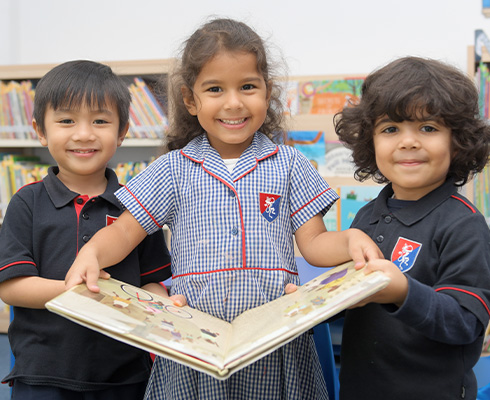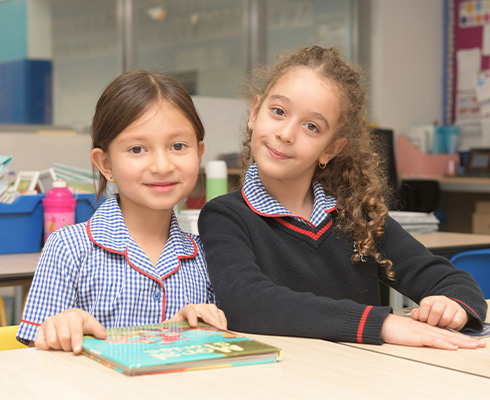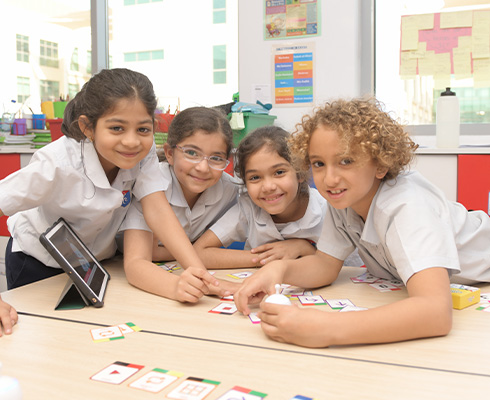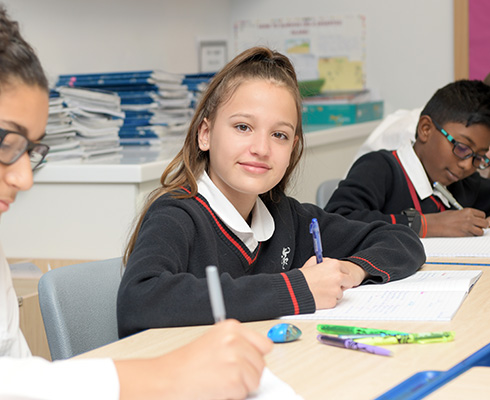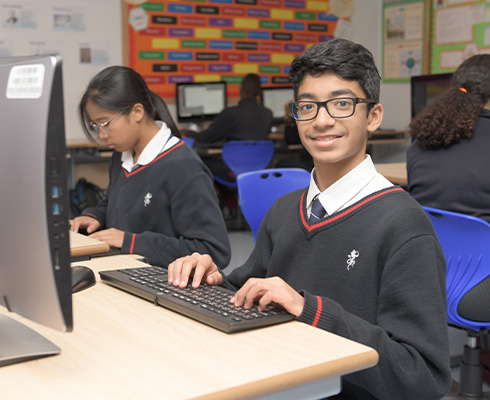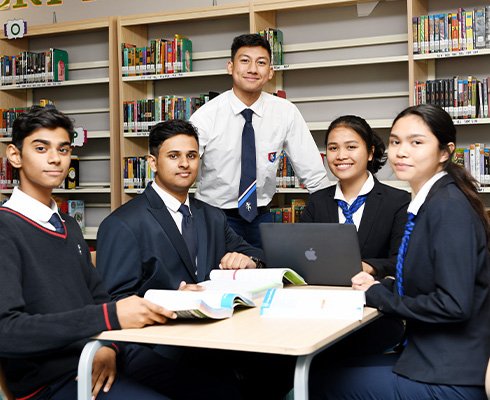Early years FOUNDATION STAGE Curriculum at GFS
Early Years Foundation Stage
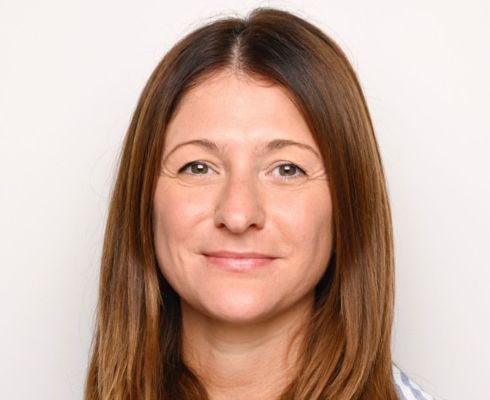

Carolyn Gorham
Deputy Head of Primary
Hello, my name is Miss Carolyn.
Explore the Early Years Foundation Stage Program
(Age: 3 ,4 and 5 years old)
(FS1 and FS2)
-
Pedagogy
GEMS Founders School uses the Early Years Foundation Stage Framework as the basis for its curriculum. This framework ensures that all children have access to a broad range of knowledge, and skills that are essential for future progress through school and life.
At GEMS Founders School, we understand that young children learn most effectively when they are actively engaged. Active learning involves meaningful interactions with people, objects, ideas, and events that captivate children’s attention and sustain their involvement. As such, we prioritise a mix of different practical approaches. Children learn by adults modelling, by observing each other, through adult-guided learning and through play.
Play is a crucial element of the learning process, supporting children’s development across all areas. Our practitioners provide a variety of high quality structured and unstructured play opportunities, both indoors and outdoors. These learning opportunities immerse children in hands-on experiences that encourage curiosity, exploration, investigation, and allow children to pursue their own interests, helping them make sense of the world around them.
Teachers support children with their learning through modelling, observing, developing play and supporting thinking. These interactions form the basis of our ongoing observational assessments of children against developmental milestones.
Throughout the year, ongoing observational assessments are conducted to track progress against developmental milestones. At the end of FS2, children’s attainment is evaluated against the 17 Early Learning Goals. Our Foundation Stage is designed to ensure that it contributes positively to children’s brain development, it nurtures a lifelong love of learning and supports readiness for Key Stage 1, equipping children with the skills and confidence they need to thrive in school and beyond.
* Early years foundation stage statutory framework For childminders Setting the standards for learning, development and care for children from birth to five Dated: 11 October 2024 Effective: 01 November 2024
-
Course Structure
Early Years Foundation Stage consist of two year-groups: FS1 and FS2
The Early Years Foundation Stage is based up four overarching principles. These are:
- Every child is a unique child, who is constantly learning and can be resilient, capable, confident, and self-assured.
- Children learn to be strong and independent through positive relationships.
- Children learn and develop well in enabling environments with teaching and support from adults, who respond to their individual interests and needs and help them to build their learning over time. Children benefit from a strong partnership between practitioners and parents and/or carers.
- Importance of learning and development. Children develop and learn at different rates.
In the EYFS there are seven areas of learning and development. All areas of learning and development are important and inter-connected. The three prime areas are particularly important for learning and forming relationships. They build a foundation for children to thrive and provide the basis for learning in all areas.
Prime areas:
• Communication and language
• Physical development
• Personal, social and emotional development
The four specific areas help strengthen and develop the three prime areas.
Specific Areas:
• Literacy
• Mathematics
• Understanding the world
• Expressive arts and design
All areas of learning are interlinked and foster holistic development, enabling children to grow as confident, capable, and enthusiastic learners.
-
Curriculum

